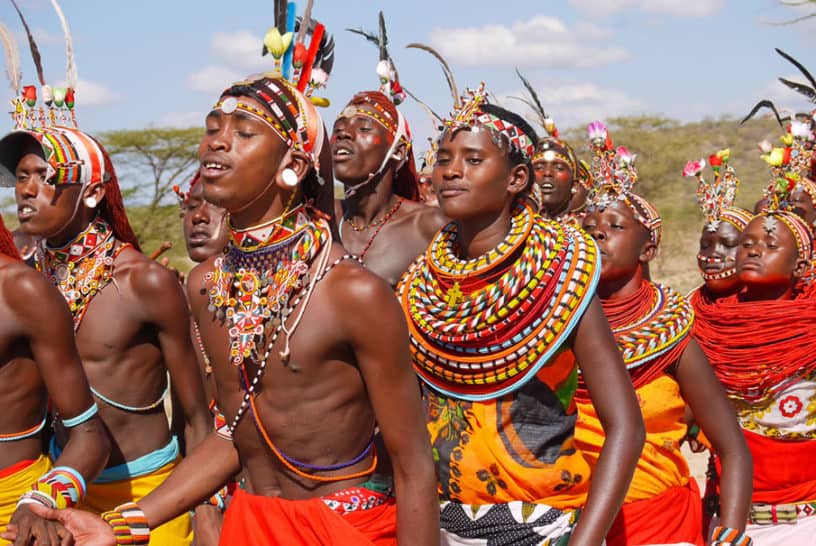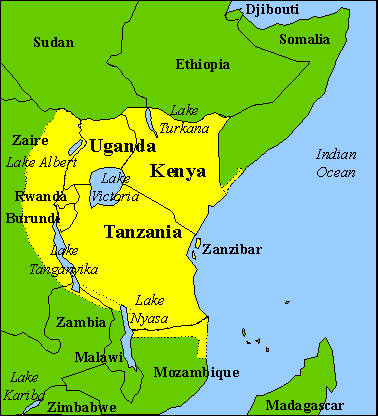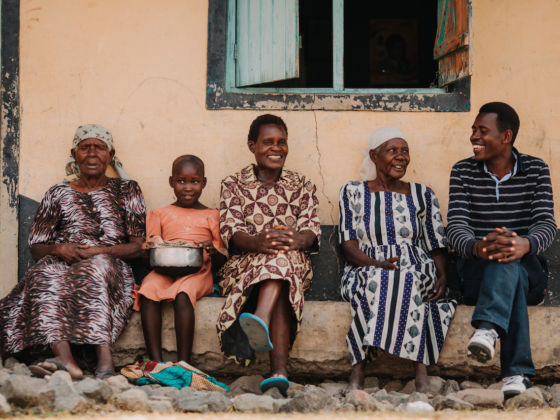 Discover Africa
Discover Africa The indigenous peoples of Kenya. Swahili is widely spoken in Kenya.
After so many years of talk about its potential, the African continent is waking up to understand and appreciate the power of unity represented by a language.
The African Union (AU) officially adopted Kiswahili or Swahili as one of the official working languages of the African continent, the Assembly of Heads of State and Government of the AU announced in a statement on February 10 in Addis Ababa, Ethiopia.
The approval comes after a request by Tanzanian Vice-President Philip Mpango, who said that over 100 million people in Africa speak Kiswahili, one of the most widely spoken languages on the African continent. “Kiswahili is already in use in various communities, including the East African Community (EAC),” where it is the most widely spoken language, and in the “Southern African Development Community (SADC)”
According to the United Nations, Kiswahili has its origins in East Africa, and Swahili speakers are spread across more than 14 countries: Tanzania, Kenya, Uganda, Rwanda, Burundi, Democratic Republic of Congo (DRC), South Sudan, Somalia, Mozambique, Malawi, Zambia, Comoros Islands and as far as Oman and Yemen in the Middle East.
Some Southern African countries, such as South Africa and Botswana, have introduced it in schools while Namibia and others are considering doing so.
Overall, the Swahili language has 200 million speakers around the world. Originating from the East Coast of the continent, it is one of the ten most widely spoken languages in the world.
Swahili was a means of communication during the colonial period. But it is not just a language — it has dictated huge changes that have led to bridges for African continental unity. The language is now becoming the symbol of African unity, a bridge between the continent’s citizens. This sense of African unity can be strengthened by a common means of communication. The language could be a great tool to unite, intensify relationships, and above all, lead to greater understanding.
Goodbye Colonizers
Linguistic independence appears to be a much-debated issue and is at the center of the African political agenda. The peoples of the continent know very well that it has all the means at its disposal to strengthen the sense of unity between its countries, the latter through the acceptance of Swahili as the language of reference. This language can thus become the meeting place for the continent’s inhabitants, without having to ask for and depend on Western educational aid or assistance.
Swahili was initially used as a language for trade with the Arabs along the East coast of Africa. In fact, 40% of the lexicon in Swahili comes from the Arabic language which is spoken in North Africa, the Arabian peninsular, and in the Middle East. Later, in the late 19th and 20th centuries, it was recognized as a language in the world of administration and education by the German and British colonial regimes.
The Past and Present Challenges of the Swahili Language

A map showing the geographic span of the Swahili language in Africa
There have been numerous observations that the development of a common method of communication will allow the continent’s connections to grow. This new challenge presented by Swahili is to establish itself as an alternative language on the continent, against French and English, which continually attempt to become the continent’s most widely spoken languages.
Tanzania’s first president, Julius Nyerere, promoted Swahili as a pan-African language in the 1960s. Nyerere used the language to unite his country after independence.
Despite this post-colonial vision and the current state of Swahili, a dose of realism is in order. European languages continue to dominate on the continent, and it will take significant effort to change this situation. However, while Swahili is popular in Eastern, Central, and Southern Africa, it faces stiff competition in the West and North.
While Arabic is the dominant language in the North, other African languages such as Hausa, Igbo, and Yoruba, are spoken in the West. The fear is that these languages may continue to compete to be the lingua franca in the West.
To become truly pan-African, Swahili will require political will, economic imperative, and financial investment in all regions. One of the ideas often conveyed is that of a continent that is powerless and unable to help itself. It is said the continent depends too much on the Western world, America and European nations especially, in order to prosper and to help its own people. The other idea is that the continent seems to be playing a completely passive role.
There is now an enormous need to make the Swahili language more and more important, to confirm the fact that the continent can and wants to gain its true independence from the West.

